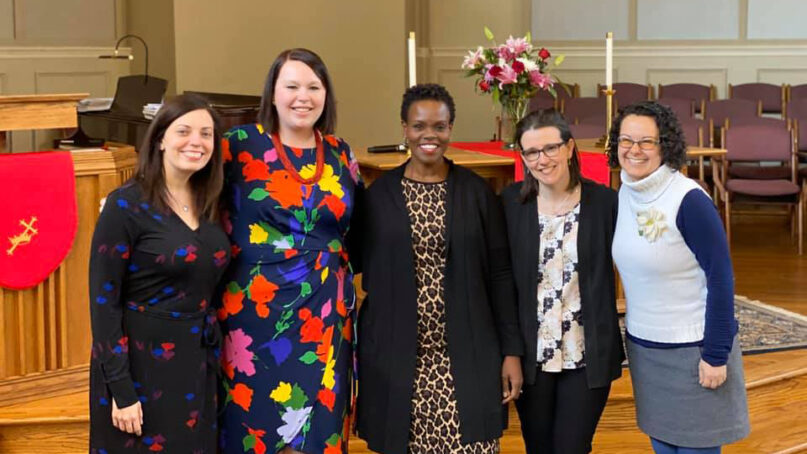(RNS) — Twelve years ago a group of young church leaders flew to Florida to observe ministry at a church there. Five women from the larger group arrived early at the Fort Lauderdale airport. They rented a car, drove to Miami for dinner and began to talk.
They haven’t stopped since.
The five, two Baptists and three Methodists, didn’t plan on forming a clergy circle. They were all Lewis Fellows at Wesley Theological Seminary, eager to develop their leadership skills and ready to break the proverbial glass ceiling at their respective congregations.
As women in a male-dominated profession, they recognized the need to find support — and sisterhood — if they were going to make it in ministry.
“I have friends from a lot of different areas of my life,” said the Rev. Kristin Adkins Whitesides, one of the women, now pastor of First Baptist Church in Winchester, Virginia. “But few of them understand what it means to be a pastor. This group is so important because they get it. We don’t have to explain the challenges of this calling.”
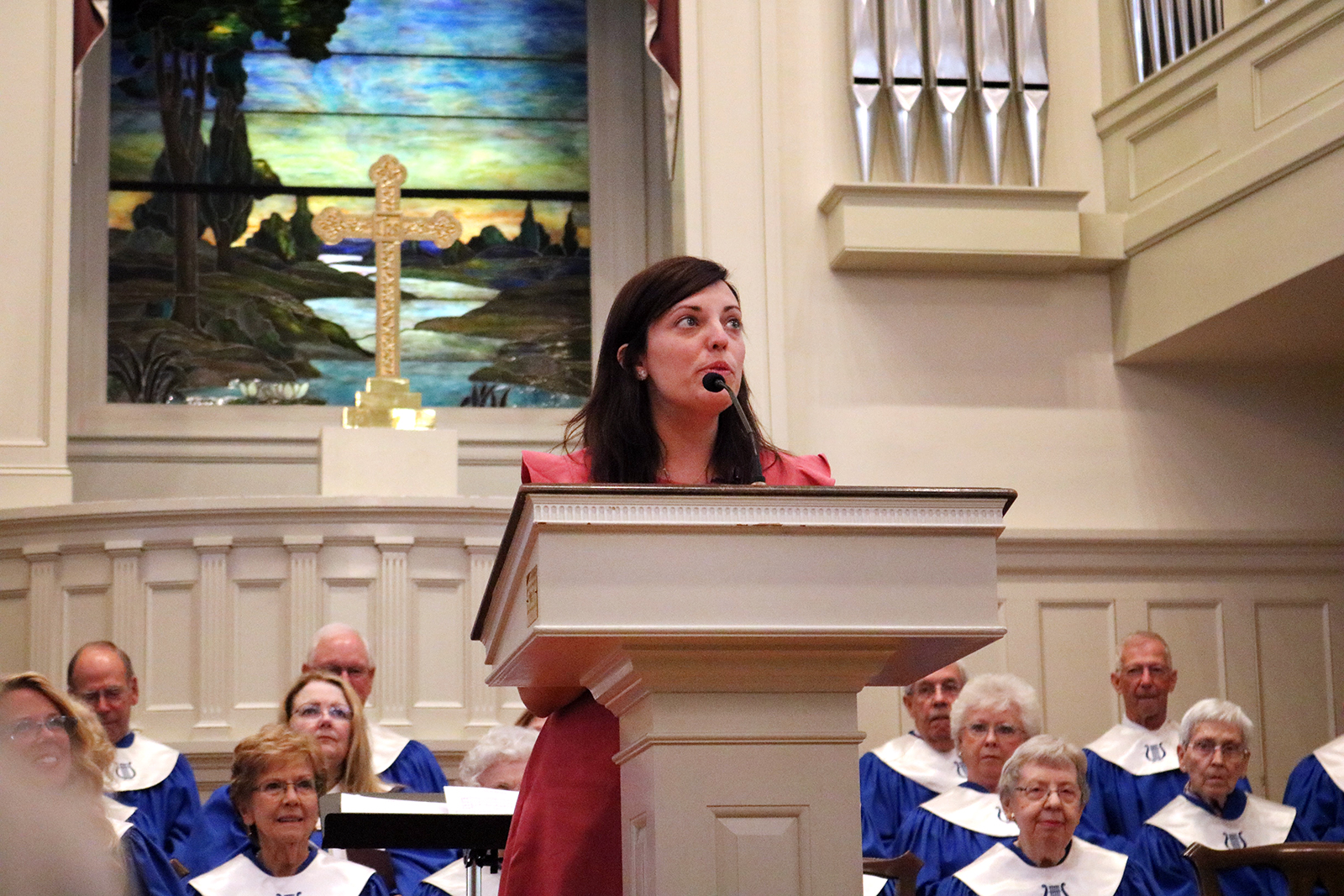
Kristin Adkins Whitesides speaks during her pastoral installation in 2017. Courtesy photo
The others who came together that day in Florida are the Rev. Theresa Thames, now associate dean of religious life at Princeton University and its chapel; the Revs. Kate Payton and Jenny Cannon, both United Methodist pastors in Minnesota; and the Rev. Leah Davis, pastor of a Virginia church affiliated with the Alliance of Baptists and the American Baptist Churches USA.
At a time when reports of clergy burnout and clergy misconduct are soaring, the five women have been able to forge a tight collegial bond to help them navigate challenges, avoid pitfalls and find joy and fulfillment in their calling.
They meet less frequently in person than they used to, and for the past two pandemic years have gathered monthly for a Zoom chat. But they communicate daily through a shared group text. Messages might be as weighty as insights about a Lenten sermon or as light as what top best accommodates a clip-on microphone.
Over the years, they have stood side by side at each others’ highs and lows. They’ve preached and served Communion at each other’s installation services, celebrated weddings, learned how to juggle motherhood and ministry and grieved a divorce.
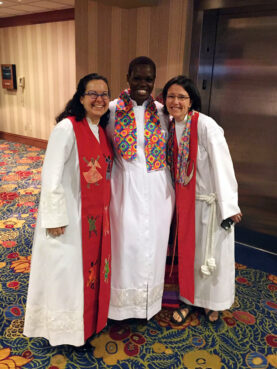
Kate Payton, from left, Theresa Thames and Jenny Cannon pose together. Courtesy photo
“Each of us has experienced personal and vocational change,” said Cannon, pastor of Christ United Methodist Church in Rochester, Minnesota. “Having people really good at listening, and being heard and understood, is a wonderful thing. I haven’t felt isolated in ministry because I’ve had these folks in my life.”
Over the past month, their group text messages have ranged from sharing sermon ideas for Lent to heaping praise on a new book they were all reading (Cole Arthur Riley’s ”This Here Flesh”). In Zoom sessions and group texts, they’ve gone over scripts for how to let go of an office assistant who wasn’t working out and shared resources for explaining to a confirmation class the theological concept of “Imago Dei.”
The ties they’ve established are not taken for granted in clergy circles: Though they work with people every day, much of what is shared with clergy is confidential. Seminaries train clergy not to form emotional attachments to members of their congregations. Church leaders, often socially isolated, can be vulnerable to loneliness.
In this environment, peer support groups are essential.
“How many able, gifted men get these larger churches and they either burn out or act out, have an affair and crash?” said the Rev. Mahan Siler, a retired pastor of Pullen Memorial Baptist Church in Raleigh, North Carolina, who has facilitated many clergy groups and met the women a few years ago. “I could name 12 just from my experience. It hurts the church.”
RELATED: Hillsong pastor Brian Houston resigns after revelations of indiscretions with women
Siler said clergy groups whose participants can be open about their leadership trials and triumphs are essential. If they can form deep friendships where truth telling is valued, even better.
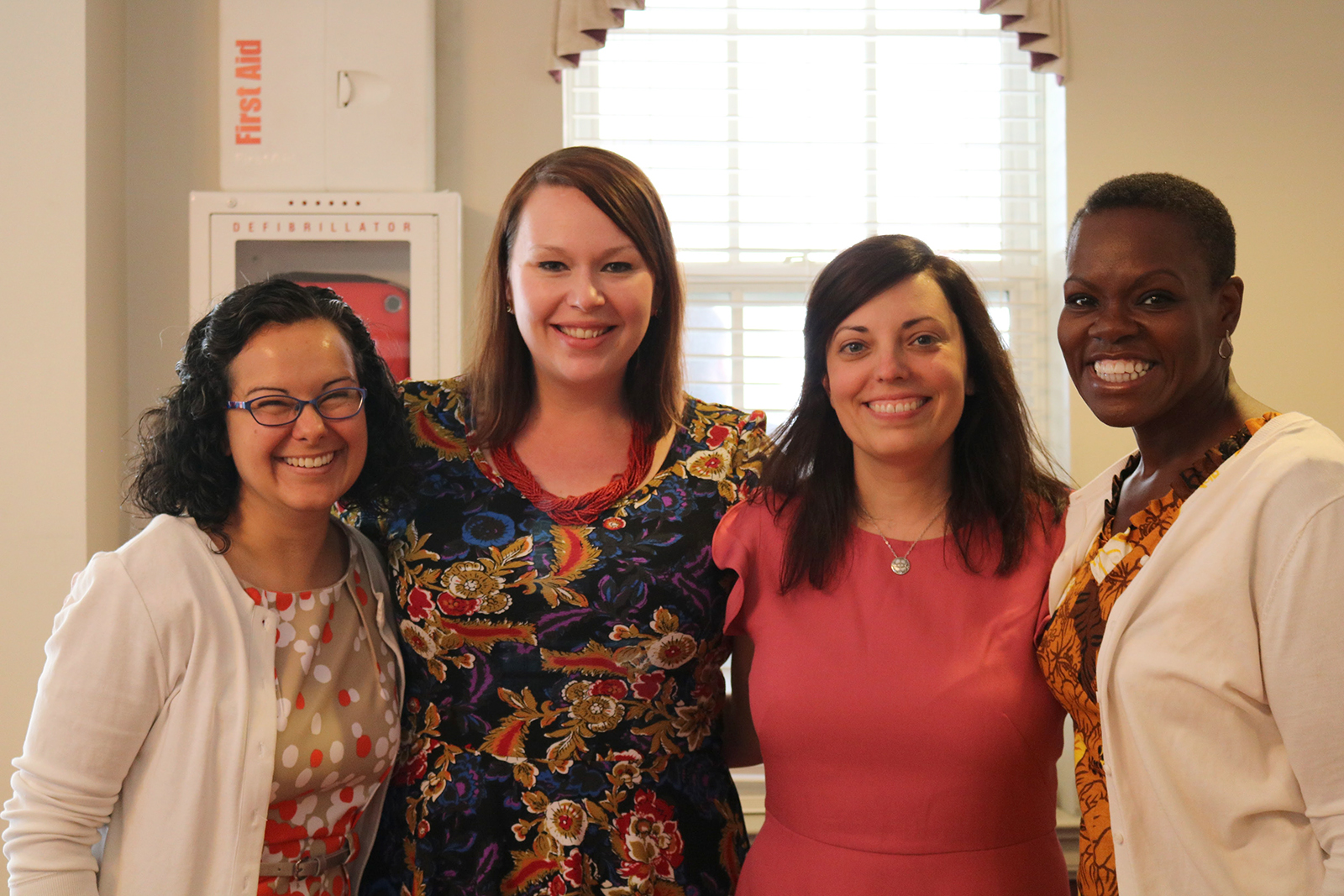
Kate Payton, from left, Leah Davis, Kristin Adkins Whitesides and Theresa Thames in 2017. Courtesy photo
Spread out in three states and two time zones, the five ministers have sought out grants to allow them to meet in person. They’ve shared Airbnb rentals for a week, enjoying each other’s company while thinking deeply and sharing thoughts about sermon writing and planning sermon series.
They also discuss favorite podcasts and sing together, most recently songs from Disney’s “Encanto.”
And whether in person, online or through texts, they’re able to vent.
“These were women I could be my whole self with,” said Payton. Earlier in her career, Payton was appointed to a church far from her and her husband’s home, meaning one of them would have to quit their jobs.
“I was really ready to leave the ministry,” said Payton, who now pastors Glendale United Methodist Church in Savage, Minnesota. She and her husband made the move, and the support of the other women in the group, Payton said, was crucial.
“They were the ones who said: ‘It’s OK. You can go (to this church) and if it doesn’t work, then you’ve tried.’ They were able to help me find my feet underneath me in a moment when I was so fried and gone, I couldn’t do it myself,” Payton said.
When Davis became pregnant, the group met to help her negotiate a maternity leave from her church.
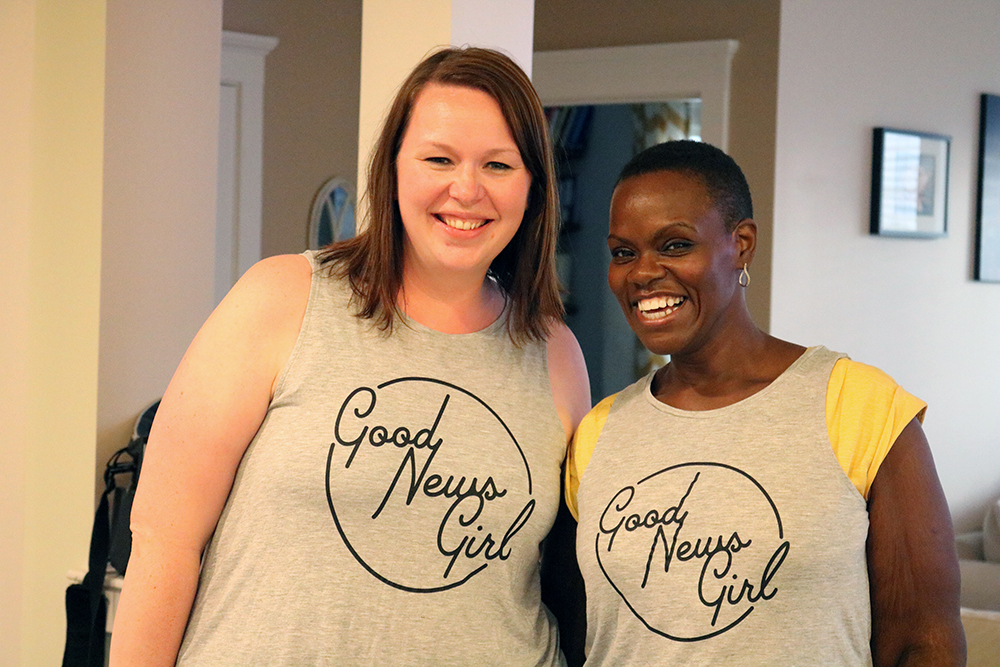
Leah Davis, left, and Theresa Thames pose together. Courtesy photo
“So many churches don’t have a maternity leave policy because they haven’t had a young woman of childbearing age in that role before,” said Thames, who is also an executive coach.
Twelve years since that first dinner in Miami, the group is transitioning to other topics. They are now all in their early 40s. Several have lost parents.
“We’re thinking of preservation and the long-term aspects of this work,” said Thames. “We’re going from being firefighters to urban planners. That’s very different from being younger and just starting out.”
Whatever comes next, said Davis, the shared wisdom of the group will shape them as much as the experience itself.
“We haven’t known ministry without this,” said Davis. “I’m so grateful this is what I know.”
RELATED: Study: Christians, Jews and Muslims encounter workplace discrimination differently
